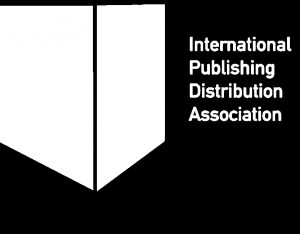During the opening of the third day in Readmagine 23 with the Accessibility Camp, the Director of Fundación Germán Sánchez Ruipérez, Luis González, welcomed the audience by explaining the main goals of that day of presentations, debates and working groups organised by Fondazione LIA.
Fondazione LIA is an Italian non-for-profit organisation devoted to the accessibility in the book industry, by assessing and helping the publishing houses to fulfil the requirements of that strategic goal. During his welcome speech Luis González expressed his intention that this Aldus Up activity would be useful to encourage the Spanish publishing houses to be more ambitious to do real efforts to prepare themselves to be ready for the new European regulation that will be put in place in 2025 «because my concern is that our publishing industry maybe yet is not already aware of the urgency and the importance of this issue» as he said.
Elisa Molinari, Project Manager in Fondatzione LIA, took the floor and explained the general guidelines of Fondazione LIA and then introduced Antonino Cotroneo, who started sharing his personal experience as a visually impaired and heavy reader person: «So a big revolution to me was the digital books. When digital books appear on the market why? Because I took some measures when I was reading a printed book with the electronic magnifier and I discovered that I was reading about six or eight pages per hour, so can you imagine this? Very few pages so why did I take this measure? Because I wanted to read many, many books. But I discovered that I could not read how many books I wanted. So I tried to ask myself why I’m not able to read how many books I want. This measure was one of the reasons but at that time I didn’t have another solution because I didn’t have digital books at that time. Later I discovered digital books when the iPad appeared on the market and there was a bigger revolution because I could increase the characters and customize the book to my personal needs even using a vocal synthesizer or braille display».
You can follow in this video the interesting hands on presentation of the EdrLab tool for accessibility by Cotroneo.
After that presentation, Gregorio Pellegrino shared two remarks about the consequences of this strategy. The first one was on «accountability»: «So if you’re not familiar with accessibility, don’t be frightened, don’t run away. You do not have to take care of everything. Assistive technologies are not up to publishers; For example, if you’re a distributor, you are not up to producing an accessible file, but for sure we will have time to explain what everyone has to do in what we like to call the accessible digital publishing ecosystem» and the second comment was that they «wanted to highlight is how important accessibility metadata are throughout the value chain».
Antonino Cotroneo has been working since 2014with Fondazione LIA where he takes part in training, testing and consultancy activities in the field of accessible digital publishing.
He has a background in music, which he achieved by studying piano and composition in Italy and at the «Mozartheum» in Salzburg. He is also a computer scientist, enhancing the use of technologies in order to integrate them into the study and life paths of children and adults with visual impairments. He currently also works as a Digital Accessibility tester and advisor for Gucci.
Elisa Molinari worked at the Italian Publishers Association, taking part at national and European projects devoted to digital publishing. Since 2013 she has been working with Fondazione LIA where she is responsible of events, training activities and projects aimed at spreading the culture of accessibility. On behalf of LIA she participates to the Accessibility Task Force of the Federation of European Publishers and to Publishing Accessibility Action Group of the Publisher Association.
Gregorio Pellegrino is computer engineer and has a strong knowledge in the digital publishing field, new media with particular attention to accessibility for visually impaired people. He is a consultant in these areas for publishing companies (especially regarding formats, international standards and authoring platforms). He is the technical manager of Fondazione LIA where he coordinates consulting and training activities for national and international organisations who want to change their production processes in order to embrace accessibility. He is involved in international working-group devoted to accessibility of publications and standard formats.





